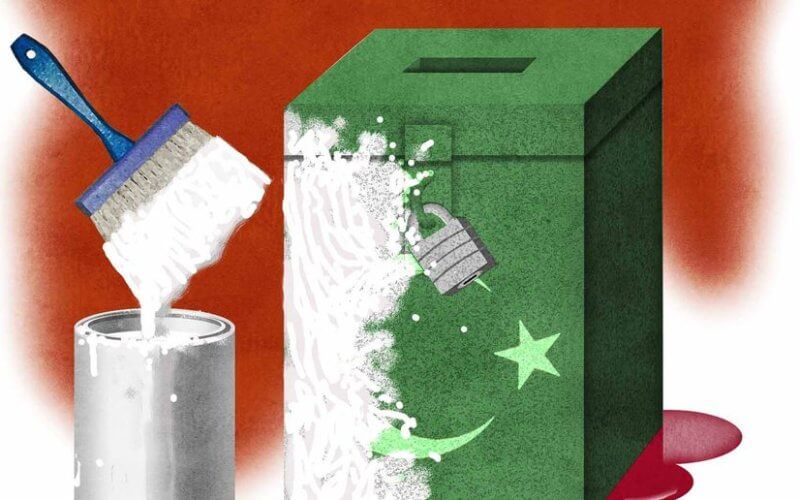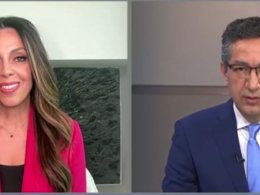This Op-Ed appeared on March 18, in the The Washington Times.
For decades, U.S. foreign policy has encouraged and fostered global democracy. Sometimes, this meant affirming the rise to power of Islamist parties and groups that were openly critical of liberal democratic principles. Policymakers have sought to dodge this contradiction by making a distinction between peaceful political Islamism and violent Muslim extremism. This, however, had the effect of normalizing political movements that rejected the very values the United States sought to promote.
Whether in Iran, Egypt or Afghanistan, the embrace of political Islam as a viable governing alternative empowered radicalized movements that threatened American interests and Western liberal ideals.
Perhaps the most consequential event related to the rise of political Islam occurred during Jimmy Carter’s presidency.
The 1979 Iran Revolution not only overthrew a key U.S. ally, Shah Mohammad Reza Pahlavi, but also led to the establishment of the Islamic Republic under Ayatollah Ruhollah Khomeini. The Carter administration’s hesitation and failure to decisively back the shah contributed to the vacuum that allowed Khomeini to establish a theocratic authoritarian regime, which openly and fundamentally opposed Western values.
From its first moments, Khomeini’s regime challenged the notion that political Islamism could be distinctly separate from extremist behavior and terrorism. This marked the beginning of an era where radical elements could gain legitimacy and power under the guise of political Islam.
Fast forward to 2009, when then-President Barack Obama sought a reset with the Muslim world after the perceived excesses of the George W. Bush years. Mr. Obama announced his new approach in a June 2009 speech in Cairo, in which he attempted to distinguish between acceptable moderate political Islamism and al Qaeda-style violent extremism. Mr. Obama sought “a new beginning between the United States and Muslims around the world,” based on “the truth that America and Islam are not exclusive and need not be in competition.”
Two years later, the Muslim Brotherhood took power in Egypt during the Arab Spring revolutions. The United States hailed the new government as a democratic alternative both to authoritarian military rule and to violent extremism and called it a victory of peaceful Islamism. Then-Director of National Intelligence James Clapper lauded the Muslim Brotherhood as “a very heterogeneous group, largely secular, which has eschewed violence and has decried al Qaeda as a perversion of Islam.”
Yet peaceful Islamism was still Islamism. Once in power, the Muslim Brotherhood began to clamp down on religious tolerance, women’s rights and democratic principles. It threatened the regional peace framework that Mr. Carter had helped put in place as president with the Camp David Accords.
And despite the Obama administration’s clever narrative that the terrorists were losing, al Qaeda disagreed. A series of essays in the terror group’s English-language propaganda journal Inspire praised the developments of the Arab Spring, saying they were “good for the mujahidin and bad for the imperialists of the West.” The Obama administration was confusing ends and means. Whether Islamism arrived by the ballot or the bullet was irrelevant to al Qaeda so long as it arrived.
The Muslim Brotherhood was soon deposed in a military coup, but Mr. Obama’s outreach in the region continued. In 2015, the United States, Iran and other countries signed the Joint Comprehensive Plan of Action, commonly known as the Iran nuclear deal. On its face, this agreement was meant to curtail Iran’s nuclear ambitions and soften relations through diplomatic engagement. But the deal also empowered the regime’s expansionist and radical agenda by unfreezing assets, removing vital sanctions, and emboldening the mullahs in their hegemonic aspirations.
Iran poured millions of unfrozen dollars into propping up proxies and supporting radical groups across the region. Meanwhile, Iran’s nuclear centrifuges kept spinning, uranium was enriched beyond marked limits, and U.N. surveillance cameras, meant to observe and deter the regime’s actions, were shut off.
President Biden has also misjudged political Islam’s radical undercurrent.
Early in his administration, Mr. Biden removed the Iranian-backed Ansar Allah, aka the Houthi militant group, from the list of foreign terrorist organizations. Today, the Houthis are conducting regular terrorist attacks on international shipping in the Red Sea. Mr. Biden’s indirect financial engagement with Iran, whether through sanctions relief or bonuses paid on top of already lopsided prisoner exchanges, have bolstered a regime that has doubled down on supporting radical proxies across the Middle East, such as Hamas and Hezbollah.
And while the abrupt and disorganized U.S. withdrawal from Afghanistan in 2021 was softened with assurances that this new and improved Taliban was not the bad old Taliban of the 1990s, this has not proved to be the case. The Taliban have imposed Shariah law, waged war on women’s rights, and is once again turning Afghanistan into a launch pad for terrorism.
These instances serve as cautionary tales. Whitewashing political Islamism as fundamentally different from terrorism fails to recognize the complex anti-Western ideology common in these groups. While not all Islamist mass movements engage in terrorism, they still oppose liberal democracy and promote environments where extremism thrives.
As we have seen in recent months, while military interventions and counterterrorism measures have been necessary in some cases, they cannot be the sole approach to combating terrorism once it is unleashed. Foreign policy leaders need to understand the DNA of political Islam, an ideology and movement that seeks to use religious beliefs for political power and control, often at the expense of democratic values and principles.
The policies and positions adopted by the Carter, Obama and Biden administrations in these contexts reflect a misunderstanding of political Islamism’s basic hostility to liberal democratic values and its challenge to regional stability. By engaging, tolerating or emboldening groups and regimes under the broader umbrella of political Islam, the U.S. has distorted the lines between moderates and extremists.
This has created a paradox at the heart of U.S. foreign policy. Attempts to promote liberal democracy have emboldened the very groups that most oppose Western values of democracy, freedom and individual rights.
James S. Robbins is dean of academics at the Institute of World Politics. Lisa Daftari is an investigative journalist and the editor in chief of The Foreign Desk, an online news source that focuses on human rights, terrorism, and Middle Eastern affairs.










